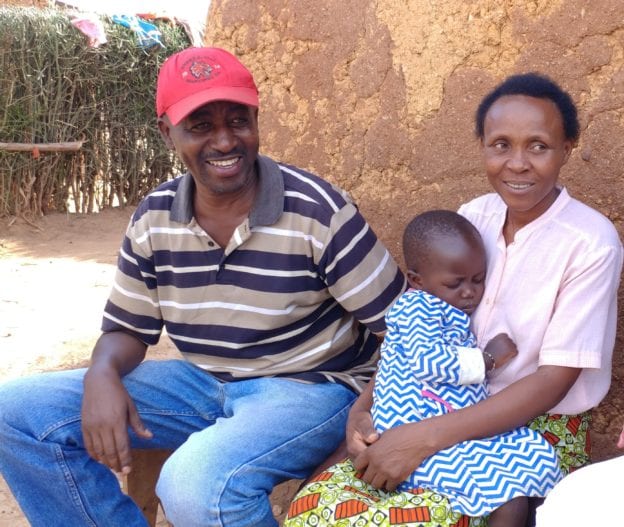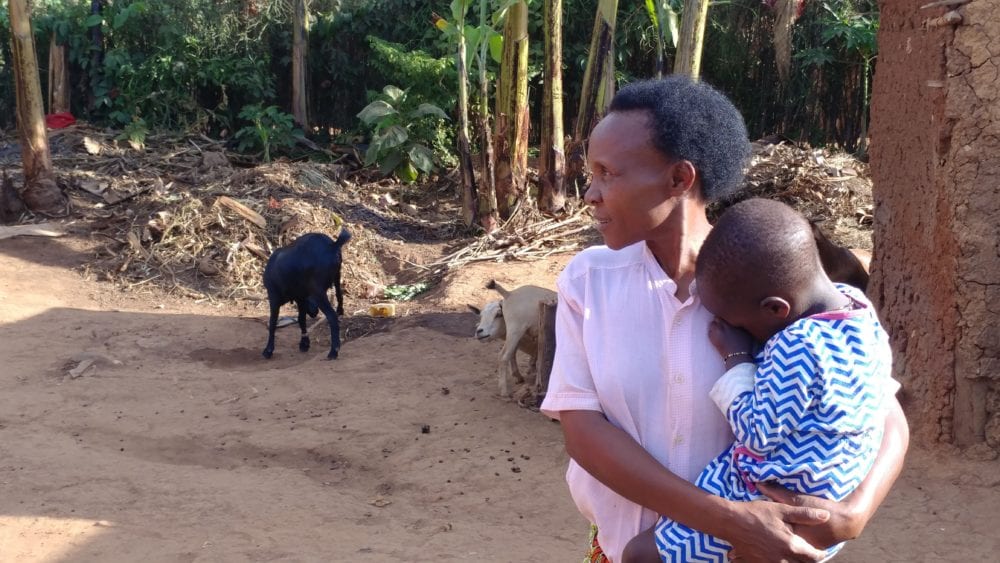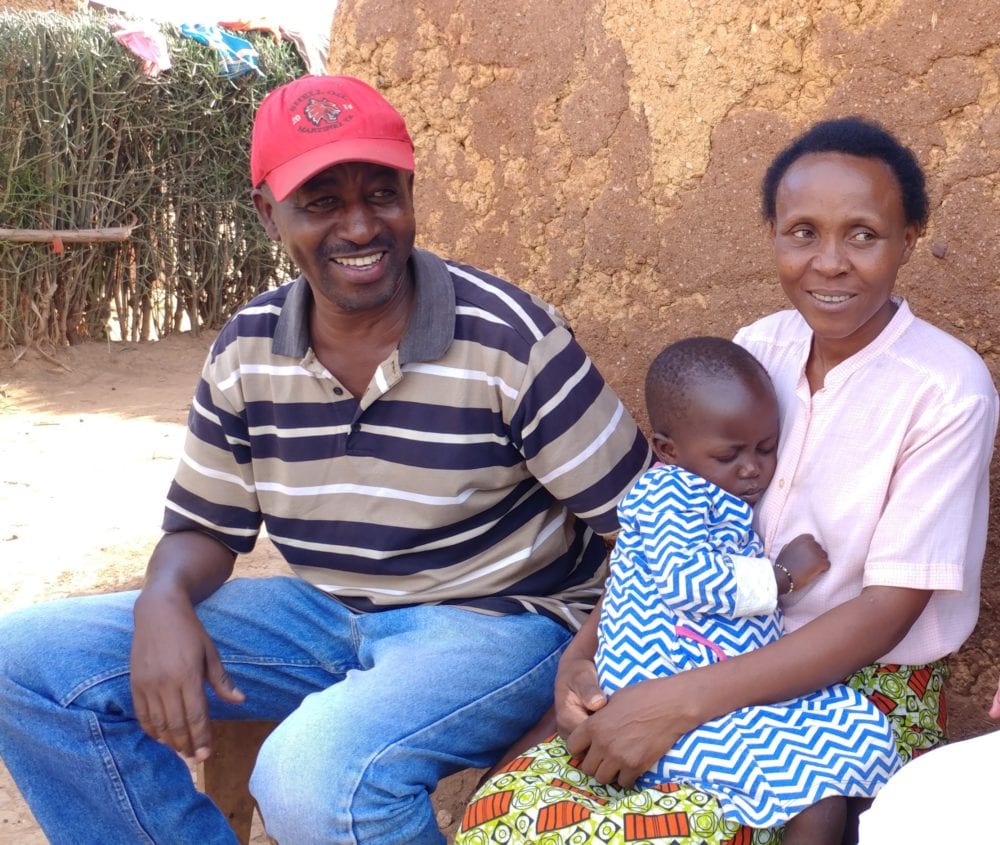For a mother and daughter, support starts at home

– By Mark Brender
A soft cry comes from inside Agnes Ubaruta’s small mud home in rural southern Kayonza, Rwanda. Aline is awake. Agnes goes inside and comes back carrying her daughter, curled and sleepy, in her arms.
Aline is three now and thriving, which is something Agnes couldn’t have said about her daughter two years ago. That’s when a community health worker first introduced her to Partners In Health – or simply ‘Partners’ as Agnes and community members like to say. Nearly half of all children under five in Rwanda have experienced malnutrition, so it wasn’t hard for a trained community health worker to identify a severely malnourished child – and a mother in need of support.
It’s not clear why Agnes’s six other children were fine when they were infants and Aline was not. Agnes’s husband doesn’t seem to be around and there are lots of mouths to feed. Asked what would have happened to Aline without support from ‘Partners’, Agnes replies that there aren’t a lot of options: either the child would have got better on her own or she would have died.

With food supplementation and regular support from her community health worker and the broader health system, Aline got better. With donations of seeds and flour and agricultural mentoring and training on cooking healthy foods, Agnes is in a much better position too. Her agriculture assistance worker visits her regularly and gives her advice on her backyard kitchen garden, planted with maize, beans, peppers and other vegetables. The garden is a source of pride for Agnes; she doesn’t know where she would be today without it. She also takes care of other people’s goats and is part of a savings group. With the proceeds from the savings group, she figures she’ll be able to buy her own goat by December. She wants to use the proceeds from her own goat to pay for mutuelle, Rwanda’s community-based health insurance program.
While Rwanda continues to achieve remarkable progress, almost four out of every 10 Rwandans still report food insecurity – which is why PIH provides food packages to about 35,000 patients like Agnes and Aline every year. There is no stigma here to being in need of assistance; if anything, Agnes will be held in higher esteem because visitors have come to see her.
We visited Agnes and Aline in early October, about a week before the International Day for the Elimination of Poverty. Providing the kinds of supports for women like Agnes that make life possible for children like Aline is a great place to start.

PIH provides approximately two-thirds of all its services to women and their children – representing close to 1 million women’s health visits, family planning visits and deliveries each year. See how PIH Canada supports maternal and women’s health across all the countries where we work.



